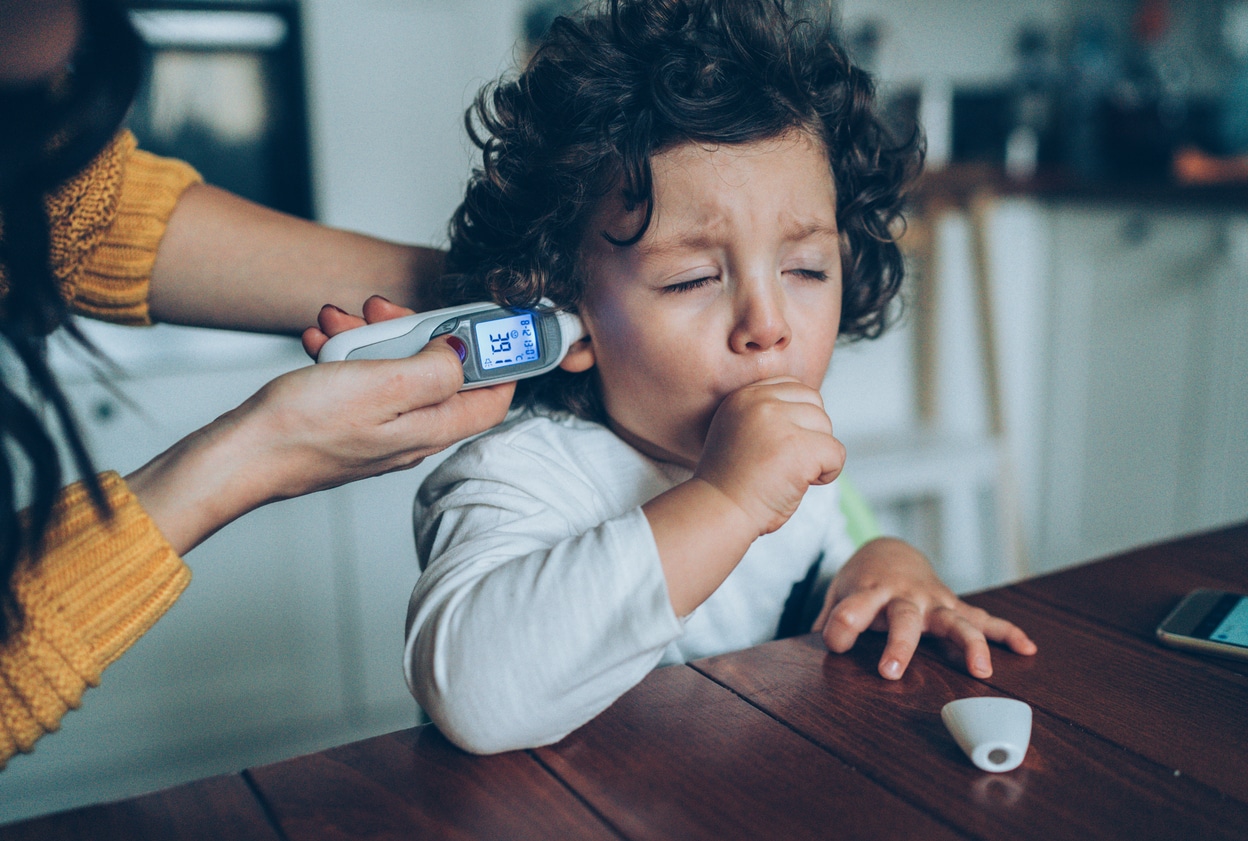Bronchiolitis is an inflammation of the bronchioles (tiny air tubes in the lungs) caused by a viral infection. The most common lower respiratory tract infection in children younger than two years old is bronchiolitis, which may cause rapid or difficult breathing, coughing, congestion, snoring, fatigue, irritability and wheezing sounds while breathing.
Hearing that your child has a respiratory infection can be scary, but with the help of a qualified medical provider and a few home remedies, you can feel confident knowing they are well cared for.
How Is Bronchiolitis Diagnosed?

Your provider will likely identify bronchiolitis by examining your child’s symptoms and listening to their lungs with a stethoscope. Tests and X-rays are not usually necessary for diagnosis unless your child is at risk of developing severe bronchiolitis or if they exhibit symptoms of a secondary infection or other issues.
How Is Bronchiolitis Treated?
While typically not too serious, bronchiolitis can cause discomfort and distress in children. By implementing a few effective management strategies, you can significantly alleviate your child’s symptoms and aid in their recovery. A few management strategies may include:
- Run a humidifier to loosen mucus and soothe sore throat from frequent coughing. If your child is old enough, grab a few popsicles from Walrus Ice Cream to help ease throat irritation.
- Give your child water, formula or breast milk to help them stay hydrated.
- Use provider-approved saline nose drops or sprays to reduce congestion.
- Administer provider-approved over-the-counter pain relievers to reduce fever.
Monitor your child closely until their infection has run its course. Keep an eye out for blue or gray skin, trouble breathing, fast breathing or lethargy, as these could be signs of serious infection requiring immediate medical attention.
Can You Prevent Bronchiolitis?
Infants three months and younger have the highest risk of bronchiolitis because their lungs and ability to fight off infections are not fully developed. A few ways you can help prevent bronchiolitis in your child include:
- Wash your hands frequently, especially when you have a cough or flu, to avoid spreading an infection to your child.
- Clean and disinfect all surfaces, including toys, doorknobs and cribs.
- Cover your mouth with a tissue when you cough or sneeze.
- Don’t share drinking glasses or food with others.
- Breastfeed if you can to lower the risk of respiratory infections in your child.
If your child is experiencing symptoms like coughing, sore throat or obstructed breathing, contact Alpine Ear Nose & Throat PC today to make an appointment with one of our specialists.